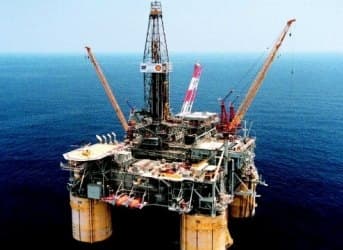The Middle East, source of much of the world’s hydrocarbons, is one of the most volatile regions on earth, where energy issues impact international relations. From Iraqi oil output, still struggling to reach its 2003 pre-invasion levels through Iran’s sanctioned nuclear program, the region focuses the world’s attention like nowhere else.
Now another issue is complicating the mix, Israeli natural gas production.
Like Turkey, Israel is a net energy importer – according to the CIA, in 2010 Israel produced a mere 4,029 barrels per day of oil, but imported 238,000 bpd.
Natural gas? In 2009, Israel produced 1.55 billion cubic meters, but consumed 3.25 bcm. Israel imports all of its oil and coal and 70 percent of its natural gas needs, leaving the government deeply interested in developing indigenous alternatives, especially as the “Arab Spring” led to Egypt halting its natural gas exports.
Which is why for the last several years Israel has been so excited about potentially huge natural gas discoveries.
But the bad news is that they are in the eastern Mediterranean, in contested waters claimed by not only Israel, but the Palestinian Authority, the Republic of Cyprus and Turkey. At issue is each country's claim to its Exclusive Economic Zone (EEZ) under the Third United Nations Convention on the Law of the Sea (UNCLOS), which came into force in November 1994. Under UNCLOS III, a nation can claim an EEZ of 200 nautical miles from its coastline.
In March 2010 the U.S. Geological Survey released its survey of the Levant Basin, which concluded that the waters of Israel, Lebanon and Republic of Cyprus potentially contained at least 50,000 billion cubic feet of natural gas yet to be discovered and that in total the Levant Basin could contain as many as 227,430 billion cubic feet of natural gas and 483 million barrels of oil. Accordingly, it is no less a question of what lays beneath the waves, but whom it might belong to.
Companies are already moving to exploit the reserves. In February Israel's Delek Group, Ltd. announced that it has discovered what it estimated to be close to 1.3 trillion cubic feet of natural gas in Israeli waters near the Lebanese border. Delek is working in cooperation with the U.S. company Noble Energy. Israel is attempting to press forward to the swift development of its Mediterranean offshore natural gas assets, the Tamar field, discovered in 2009 and Leviathan, discovered the following year. In June 2011 an Israeli company announced the discovery of two new natural gas fields, Sarah and Mira, about 45 miles off the city of Hadera, while Noble Energy announced that drilling in the 125 square-mile Israeli Leviathan-1 offshore Mediterranean natural gas field had “the potential to position Israel as a natural gas exporting nation.” Initial prospecting estimates of the Tamar and Leviathan fields off Haifa, concluded that the two sites between them could hold as much as 688 billion cubic meters of recoverable natural gas.
Accordingly, the Israeli Cabinet is about to undertake the thorny issue of how to defend the country’s Mediterranean EEZ, a mission that will vastly extend the traditional purview of the Israel Defense Force well beyond its traditional nautical frontiers to up to 100 miles from Israel’s coastline.
Will it be patrol aircraft? More surface vessels? Submarines? Whatever form it takes, the sticker shock is already in, as the projected cost of the new equipment necessary for defending the offshore hydrocarbon reserves is estimated at $718 million, with estimated annual operating expenses of roughly $123 million.
Given regional volatility, the reluctance of foreign energy investors to enter conflict zones, the significant cost of protecting any energy facilities, while it is at best rash to make predictions about the Middle East, it does seem safe to say that Israel’s dreams of energy autonomy remain exactly that for the moment – dreams.
By. John C.K. Daly of Oilprice.com



















Here is how I believe it will go down. Israel and Greece will sign some sort of agreement to transfer Natural Gas from their fields at Tamar and Leviathan (or just one) through Greece to the rest of Europe. This may be forced upon Greece because of the economic predicament their in. But either way, Russia and Turkey will be cut out of it.
My .02c anyway.
Effectively they are in Israeli waters and are to begin producing next year. They will meet Israel's energy needs for at least 50 years and also allow substantial exports via pipelines to either Cyprus and or Greece within 2 years. I find the article distressingly negative and without much foundation in its summary.
On the security level the IDF has already began plans to protect the fields.
All wealth is originally mineral wealth
With Israel's gas and now oil from shale reserves equaling Saudi Arabia .
The worm has turned.